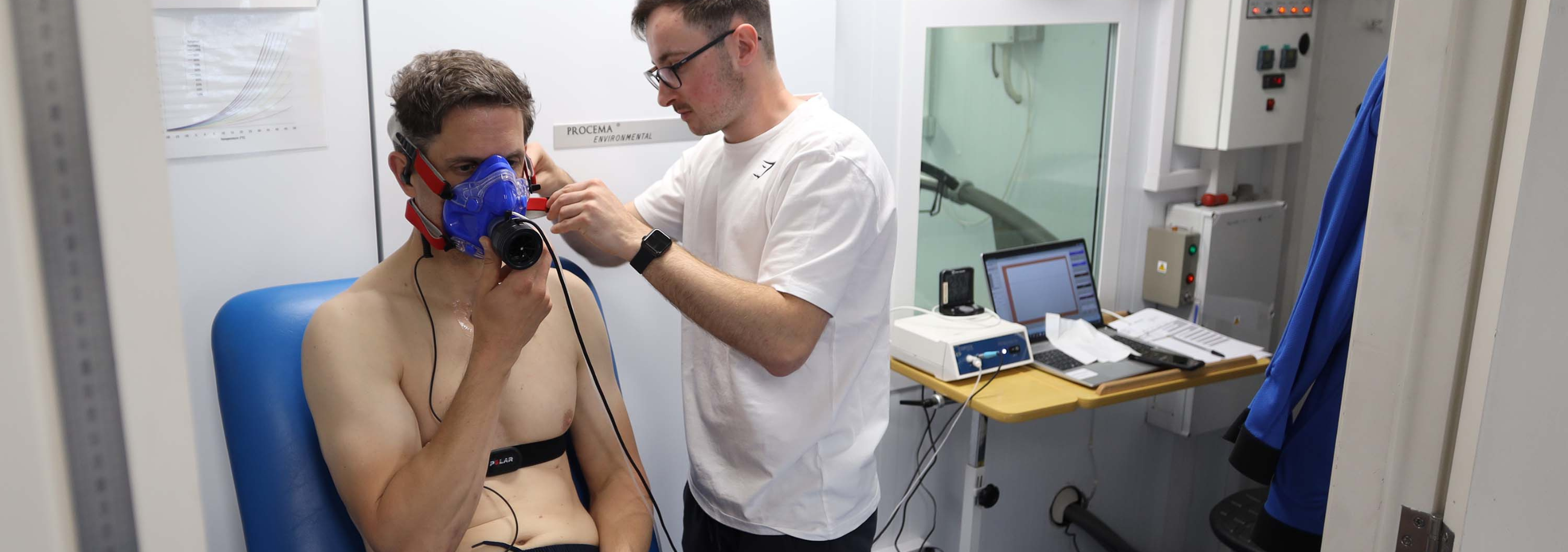Professor Lewis Halsey's Latest Research Makes Headlines in Over 150 News Stories
- Monday, July 17, 2023
Lewis Halsey, Professor at the School of Life and Health Sciences at the University of Roehampton London, and his team at the Roehampton University Behaviour and Energetics Lab (RUBEL), have been investigating the effects of ambient temperatures on people’s behaviour, physiology and energy expenditure. Their recent findings have gained widespread attention, with over 150 news stories covering their work, due to the relevance of the topic particularly in light of the ongoing heatwave in southern Europe and the increasing temperatures in general during summer months.

The key findings from Professor Halsey's research have piqued the interest of both the media and the public. One significant discovery is the identification of variations in metabolic rates among individuals in response to being exposed to hot and humid environments. The research also uncovered differences between sexes regarding physiological responses to heat, suggesting that men and women may have varying abilities to cope with heatwaves.
While the full practical implications of this research are still being explored, the findings so far contribute to our understanding of how human physiology adapts to heat. The insights gained from Professor Halsey's work could potentially have implications for industries or sectors where individuals are regularly exposed to hot environments. Further studies are currently ongoing in Roehampton’s physiology labs, with a team of Roehampton’s Drs Chris Tyler and Emily Watkins, and PhD student Chris Wolfe.
Notably, the media attention received for the research has attracted interest from various organisations and stakeholders. Sacramento City Council in California, for example, has sought expert advice from Professor Halsey about the impact of high summer temperatures on the well-being of homeless individuals. The research has also garnered extensive coverage in television, radio, and written press, with prominent outlets such as NBC, The Guardian and Sky News featuring the work, the latter two outlets visiting Roehampton’s labs to participant in the current tranche of experiments.
Professor Lewis Halsey stated "We’ve got off to a great start with our latest heat-physiology projects here at Roehampton, with several publications already and, of course, loads of press interest. And we’re building on this with follow up experiments – we’ve already got some exciting new data to analyse, interpret and publish. So watch this hot space!"
Overall, Professor Halsey's research offers valuable insights into the effects of temperature on living organisms. By understanding how individuals respond to heat, we can develop strategies to mitigate health risks and make informed decisions, especially in the face of climate change.
Extreme heat: what does it do to us and how can we adapt? – audio podcast (2023). The Guardian Science Weekly. https://www.theguardian.com/science/audio/2023/jul/20/extreme-heat-what-does-it-do-to-us-and-how-can-we-adapt-podcast